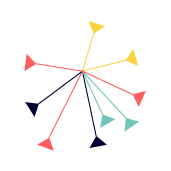
Lancet Commissions bring together multi-disciplinary groups of experts to develop responses to urgent areas of concern in global health. Commissions culminate in a report including recommendations for key stakeholders and calls for sustained actions.

The Lancet Commission on Gender and Global Health responds to the urgent need for structural and system-wide change needed if we are to see progress on gender equality and global health by 2030.
The Commission’s report provides a practical toolkit to catalyse action on gender and health.
The Commission’s work is geared towards realising a world where everyone can thrive. Realising this requires fundamentally disrupting current systems and structures relating to global health – to realise gender justice in all systems of health governance, knowledge production, policy making and service delivery.
We are in the fight of our lives in gender and health.
Gender influences everything – from the resources and opportunities available to you, to the care you receive. Yet gender is being weaponised, manipulated and politicised, with damaging implications for the health of communities around the world.
A lack of understanding around links between gender and health is negatively affecting health outcomes.
Applying a ‘gender lens’ to health policy – understanding the different health considerations required depending on gender – will improve health for everyone.
Through both the lifecycle of the Commission and in the final report, the LCGGH strives to contribute to the ongoing decolonisation of a field historically centred within the ‘Global North’ and shaped by a history of colonialism and continued neocolonial knowledge production. Yet the LCGGH is partnering with one of the most prestigious ‘Global North’ institutions in medical and global health research, The Lancet. The Commission recognises the contradiction (and opportunity) of working in part within the very structures, systems and norms that it seeks to transform.
The Co-Chairs and Commissioners are aware of this tension. We seek to harness the positioning of the Commission within the ‘ivory tower’ of knowledge production and utilise the power and reach this partnership offers. The Commission seeks to simultaneously push at the boundaries of what constitutes evidence, knowledge, and scholarship in order to diversify the voices, disciplines and perspectives that feed into its work and to challenge the orthodoxy.